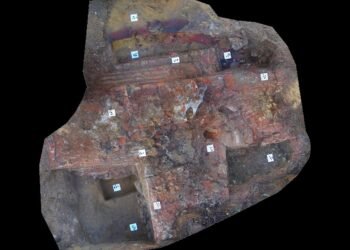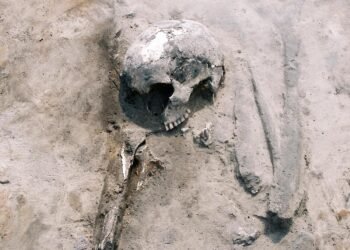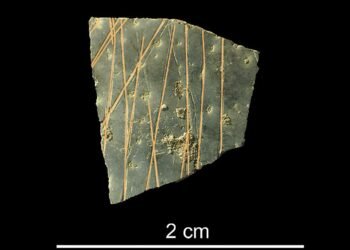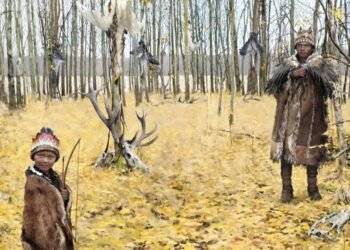Archaeologists from Leiden University, in collaboration with other researchers, have unveiled compelling evidence that Neanderthals, our ancient relatives, played a pivotal role as ecosystem engineers approximately 125,000 years ago. Their influence, revealed through the use of fire to maintain open landscapes, significantly impacted their local environment. The profound findings of this study were published in the journal Science Advances on December 15.
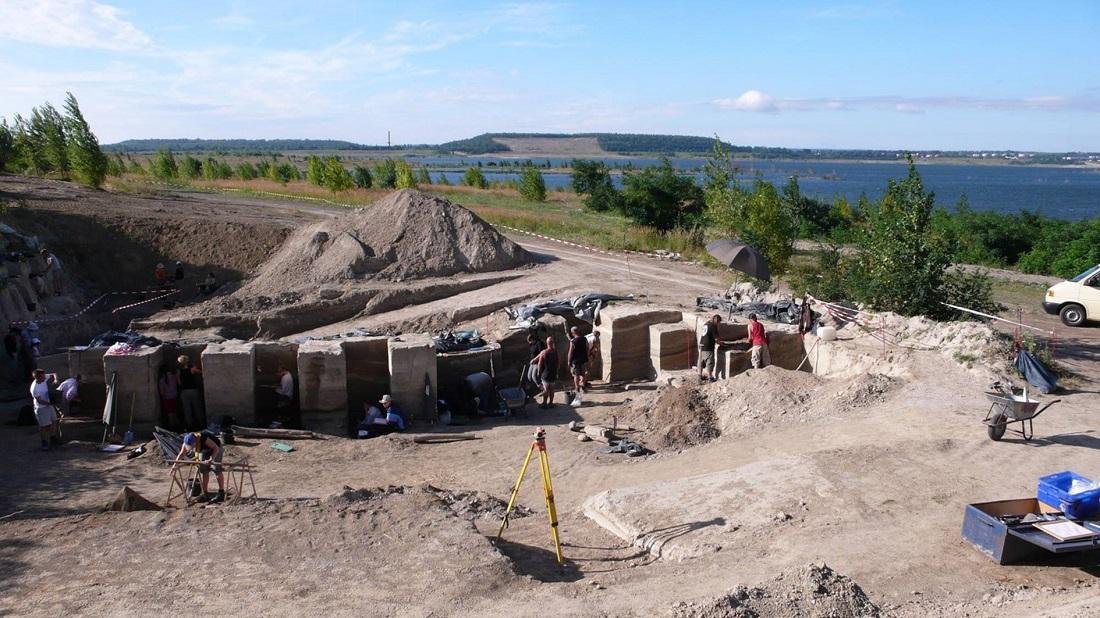
Professor Wil Roebroeks, an archaeologist at Leiden University, highlighted the broader implications of these discoveries: “Archaeologists have long been asking questions about the character and temporal depth of human intervention in our planet’s ecosystems. We are increasingly seeing very early, generally weak signs of this.”
The research conducted at a lignite quarry near Halle, Germany, known as Neumark-Nord, has added robust support to these emerging insights. Over the past few decades, archaeological investigations at this site have yielded an extensive dataset regarding the early environment, including abundant traces of Neanderthal activities.
Roebroeks elaborates on their discoveries, saying, “Among other things, the researchers found the remains of hundreds of slaughtered animals, surrounded by numerous stone tools and a huge amount of charcoal remains.”
These traces were discovered in an area that was, 125,000 years ago, covered by a forest ecosystem. This primeval landscape was inhabited not only by prey species like horses, deer, and cattle but also by remarkable megafauna, including elephants, lions, and hyenas. The forest stretched from the Netherlands to Poland, with several lakes scattered throughout the region.
Interestingly, traces of Neanderthals were found on the shores of some of these lakes. Notably, this environment was marked by the transition from dense forests to expansive open spaces, partially due to fires. What remains uncertain is whether the presence of hominins led to the landscape’s transformation or whether they were attracted to these areas as they became more open. Nevertheless, the evidence clearly suggests that hunter-gatherers played a key role in maintaining open landscapes for a span of at least 2,000 years.
To support this claim, Leiden’s Professor Corrie Bakels, a palaeobotanist, conducted comparative research. She found that at similar lakes in the vicinity, where the same animals thrived but Neanderthal traces were absent, the dense forest vegetation largely remained intact.
These revelations challenge the conventional wisdom that significant human impact on ecosystems commenced only with the advent of agriculture some 10,000 years ago, primarily through practices like deforestation for farming. Roebroeks contends that the findings at Neumark-Nord offer a compelling case for earlier, albeit more localized, human intervention in shaping landscapes.
These new research insights hold significance not only for the field of archaeology but also for disciplines concerned with nature restoration. Roebroeks stresses, “It also adds something to the behavioral spectrum of early hunter-gatherers. They weren’t simply ‘primal hippies’ who roamed the landscape picking fruit here and hunting animals there. They helped shape their landscape.”
An earlier study by Roebroeks and his research team had already indicated that hominins possessed knowledge about fire approximately 400,000 years ago. This discovery further opens the door for the possibility that hominins had a substantial impact on their environment much earlier, at least on a local scale.
In the ongoing quest to understand our history, these findings offer a fresh perspective on the complexity of human interaction with the environment. As we delve deeper into the past, it becomes increasingly apparent that our ancient predecessors played a far more influential role in shaping the landscapes around them than previously thought.
The revelation of Neanderthals as ecosystem engineers adds a new layer to our understanding of our ancestors and their intricate relationship with the world they inhabited. It is a testament to the intricate and enduring interplay between humanity and the environment throughout our history.
More information: Leiden University
More information: “Landscape modification by Last Interglacial Neanderthals” by Wil Roebroeks, Katharine MacDonald, Fulco Scherjon, Corrie Bakels, Lutz Kindler, Anastasia Nikulina, Eduard Pop and Sabine Gaudzinski-Windheuser, 15 December 2021, Science Advances. DOI: 10.1126/sciadv.abj5567





